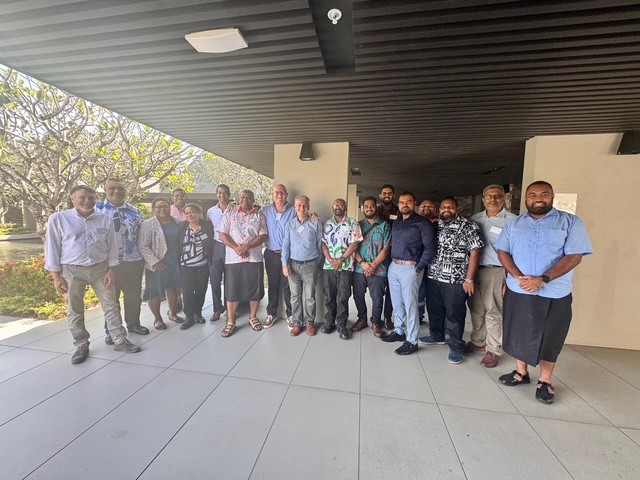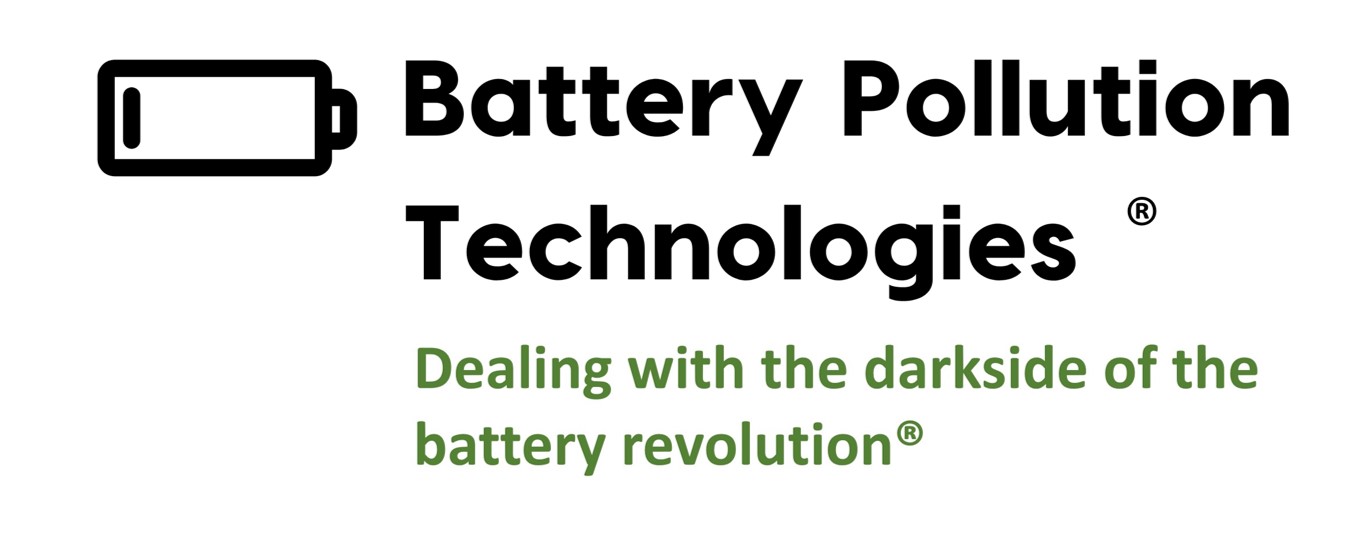Trending...
- City Council Candidates Unite Behind "Common Sense Contract with NYC"
- Ann Arbor IT Support Company Helps Small Businesses Stay Safe in 2025
- Bookmakers Review Highlights Five Intriguing Bets to Make in October 2025
This partnership will support a series of coordinated initiatives including joint research into battery end-of-life issues in tropical climates and feasibility studies for establishing a battery recycling regional hub facility in Fiji to support all Pacific Nations in a "hub and spoke" operational framework.
SYDNEY & SUVA, Fiji - Michimich -- The University of the South Pacific (USP) and Australian start-up Battery Pollution Technologies (BPT) are pleased to announce an exclusive strategic collaboration aimed at addressing battery pollution, circular economy opportunities, and sustainable energy challenges in the Pacific Islands region.
This partnership will support a series of coordinated initiatives including joint research into battery end-of-life (EoL) issues in tropical climates and feasibility studies for establishing a battery recycling regional hub styled facility in Fiji.
It also includes the evaluation of second-life battery applications to extend the usable life of lithium-based energy systems.
The partnership follows on from the First Pacific Battery Briefing that was delivered by Sydney-based Battery Pollution Technologies to various Fijian Government Agencies in May 2025.
With battery usage surging across the Pacific – driven by electrification, renewable energy storage, and mobility – the environmental and logistical challenges of safe disposal and reuse are growing. The partnership seeks to generate practical, regionally adapted solutions that prioritise environmental integrity, economic development, commercial opportunity and energy resilience.
More on Michimich.com
Pacific Island countries face an urgent challenge in managing battery waste, driven by their geographic isolation, limited waste management infrastructure, and the vulnerability of their land and marine ecosystems.
Batteries power everything from mobile phones and solar lanterns in remote communities to electric vehicles and backup systems for island energy grids.
However, the presence of hazardous materials such as lithium, cobalt, and nickel poses significant environmental and safety risks if not properly managed.
Improper disposal can contaminate drinking water, damage coral reefs, and heighten ire hazards – especially in densely populated areas or during extreme weather events like cyclones.
As small island developing states, Pacific nations require practical, circular economy solutions that reduce dependency on imports, build local capabilities, and safeguard both the environment and cultural heritage.
For Fijian and Pacific communities, this is highly relevant as the use of batteries grows every year – from mobile phones & e-mobility scooters and bikes to the growing number of electric and hybrid vehicles.
Lithium batteries pose a unique challenge in end-of-life disposal due to their potential to catch ire, the presence of hazardous materials and the complexity of safely recycling and reusing valuable battery metals such as lithium, cobalt, copper and nickel.
"This partnership is a significant step forward in realising a circular battery economy for the Pacific," said Mansour Assaf, an Associate Professor at USP's School of Information Technology, Engineering, Mathematics and Physics (STEMP).
"By combining BPT's technical & commercial experience with USP's regional insight and research capabilities, we aim to build sustainable models that can be scaled across all island nations."
More on Michimich.com
"This is more than a research initiative," added Nicholas Assef, Founder & Managing Director of Battery Pollution Technologies.
"It's a commitment to innovation that delivers real environmental outcomes, the potential for investment, fit-for-purpose technology development and local education and employment opportunities."
"The Pacific is one of Earth's most beautiful regions, and the environmental impact of toxic end-of-life batteries in land and water needs to stop." Nicholas Assef concluded.
The collaboration will also encompass student research opportunities, policy engagement with Pacific regional governments and battery recycling capacity-building programmes across Pacific Island countries.
A critical and time-sensitive initiative will be the rapid establishment of structured internships at The University of the South Pacific, aimed at equipping students with hands-on experience in the fast-evolving battery ecosystem.
These internships will urgently address vital areas – battery diagnostics, second-life potential, materials recovery, data systems, and safe end-of-life disposal – accelerating the development of Fijian and Pacific Nations talent needed now to drive renewable energy efforts and circular economy outcomes across the region.
Battery Pollution Technologies and The University of the South Pacific have spent the past two years working closely to bring this initiative to life.
With momentum building, both parties are now eager to accelerate progress and deliver meaningful outcomes through this vital Trans-Pacific collaboration.
This partnership will support a series of coordinated initiatives including joint research into battery end-of-life (EoL) issues in tropical climates and feasibility studies for establishing a battery recycling regional hub styled facility in Fiji.
It also includes the evaluation of second-life battery applications to extend the usable life of lithium-based energy systems.
The partnership follows on from the First Pacific Battery Briefing that was delivered by Sydney-based Battery Pollution Technologies to various Fijian Government Agencies in May 2025.
With battery usage surging across the Pacific – driven by electrification, renewable energy storage, and mobility – the environmental and logistical challenges of safe disposal and reuse are growing. The partnership seeks to generate practical, regionally adapted solutions that prioritise environmental integrity, economic development, commercial opportunity and energy resilience.
More on Michimich.com
- Raven Carbide Die Helps Manufacturers Prevent Costly Tool Failures
- LaChance Brothers Excavating Shares Tips to Prepare for Your Septic Pumping Appointment
- ENERGY33 Successfully Completes Second Engineering & Construction Management Contract for a 27MW STX Cogeneration Power Plant in Honduras
- Northville Pickleball Club Opens, Michigan's Premier Indoor Pickleball Destination
- Florida International University: "Psychiatry: An Industry of Death" Traveling Exhibit Educates Students on Mental Health Abuse
Pacific Island countries face an urgent challenge in managing battery waste, driven by their geographic isolation, limited waste management infrastructure, and the vulnerability of their land and marine ecosystems.
Batteries power everything from mobile phones and solar lanterns in remote communities to electric vehicles and backup systems for island energy grids.
However, the presence of hazardous materials such as lithium, cobalt, and nickel poses significant environmental and safety risks if not properly managed.
Improper disposal can contaminate drinking water, damage coral reefs, and heighten ire hazards – especially in densely populated areas or during extreme weather events like cyclones.
As small island developing states, Pacific nations require practical, circular economy solutions that reduce dependency on imports, build local capabilities, and safeguard both the environment and cultural heritage.
For Fijian and Pacific communities, this is highly relevant as the use of batteries grows every year – from mobile phones & e-mobility scooters and bikes to the growing number of electric and hybrid vehicles.
Lithium batteries pose a unique challenge in end-of-life disposal due to their potential to catch ire, the presence of hazardous materials and the complexity of safely recycling and reusing valuable battery metals such as lithium, cobalt, copper and nickel.
"This partnership is a significant step forward in realising a circular battery economy for the Pacific," said Mansour Assaf, an Associate Professor at USP's School of Information Technology, Engineering, Mathematics and Physics (STEMP).
"By combining BPT's technical & commercial experience with USP's regional insight and research capabilities, we aim to build sustainable models that can be scaled across all island nations."
More on Michimich.com
- CCHR: VA's Psychiatric Treatments Betray Veterans, Fuel Suicide and Death
- Integris Composites Named Armor Partner for U.S. Army's XM30 Combat Vehicle
- Jaipur Countryside, 4-Star Comfort: $199 for Two— All-Inclusive with Meals + Transfers at Heritage Hotel Savista
- Probate Shepherd® Announces a New Member Probate Attorney in Fort Worth, TX
- Phinge Announces "Test the Waters" Campaign for Potential Regulation A+ Offering: Home of Netverse Verified AI & Patented App-less Technology Platform
"This is more than a research initiative," added Nicholas Assef, Founder & Managing Director of Battery Pollution Technologies.
"It's a commitment to innovation that delivers real environmental outcomes, the potential for investment, fit-for-purpose technology development and local education and employment opportunities."
"The Pacific is one of Earth's most beautiful regions, and the environmental impact of toxic end-of-life batteries in land and water needs to stop." Nicholas Assef concluded.
The collaboration will also encompass student research opportunities, policy engagement with Pacific regional governments and battery recycling capacity-building programmes across Pacific Island countries.
A critical and time-sensitive initiative will be the rapid establishment of structured internships at The University of the South Pacific, aimed at equipping students with hands-on experience in the fast-evolving battery ecosystem.
These internships will urgently address vital areas – battery diagnostics, second-life potential, materials recovery, data systems, and safe end-of-life disposal – accelerating the development of Fijian and Pacific Nations talent needed now to drive renewable energy efforts and circular economy outcomes across the region.
Battery Pollution Technologies and The University of the South Pacific have spent the past two years working closely to bring this initiative to life.
With momentum building, both parties are now eager to accelerate progress and deliver meaningful outcomes through this vital Trans-Pacific collaboration.
Source: Battery Pollution Technologies
0 Comments
Latest on Michimich.com
- Elite Rooter Creates Jobs and Expands Reach Coast to Coast with New Tampa, FL Plumbing Location
- "Super Leftist", the new poetry book by Pierre Gervois
- RNHA FL Unveils Bold New Leadership Ahead of 2026 Elections
- ASI Honors Client Achievements at 27th Annual iNNOVATIONS Conference
- Lightship Security and the OpenSSL Corporation Submit OpenSSL 3.5.4 for FIPS 140-3 Validation
- WADA AWARDS - where Diamonds melt into glamour
- First Nations Bank of Canada Partners with KYC2020 to Strengthen AML Screening and Monitoring Capabilities
- Bitcoin will still be the leader in the cryptocurrency market in 2025, and WOA Mining enthusiasts will earn passive income
- Triumph Thru Tears Premieres at 55th Anniversary Pamoja Celebration at the University of Georgia
- Helping Haircare Brands Launch with Confidence: Bond & Bloom Innovation Group Leads in Product Development
- Holiday Fineries at the Wineries on the Shawangunk Wine Trail
- Chadwick Twillman Demands Resignation of MLive Editor Joey Oliver for Publishing Deceptive Hit Piece
- Smile More Implant Centre Launches Cutting-Edge Website
- K2 Integrity Names Aaron Karczmer Chief Executive Officer
- Georgia's Lanier Islands Resort Announces Return of Magical Nights of Lights
- Boston Industrial Solutions' Natron® XG Series Ink Exceeds Global Safety Compliance
- West Virginia Grassroots Group Sparks Statewide Momentum in the Fight for Election Integrity
- Michigan Bathroom Remodel Company Opens New Showroom in Novi
- Commercial Debt Collector Highlights the Effectiveness of Non-Hostile Debt Collection
- Ann Arbor Chiropractor Offers Non-Surgical Pain Relief with Shockwave Therapy

